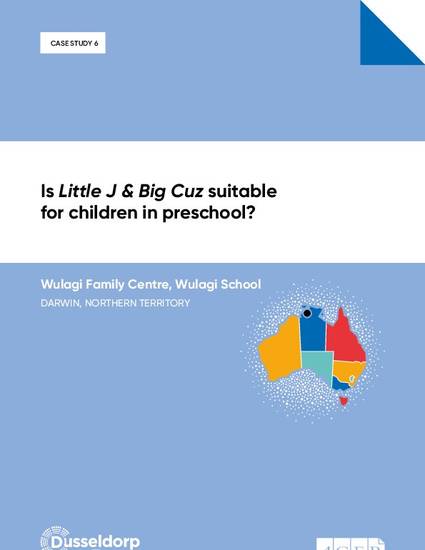
The Wulagi Family Centre and Wulagi Preschool in Darwin in the Northern Territory provide programs for children and adults that emphasise the importance of language development and high quality interactions between children and adults, informed by the Abecedarian Approach. This case study of the Wulagi Preschool asks the question: is the Little J and Big Cuz television program suitable for children in preschool? At Wulagi Preschool Little J and Big Cuz was trialled with 40 children, aged between 3 and 4 years of age. About a third of these children identify as being Indigenous. Due to the timing of this trial and that the educators’ programs were already planned, the staff chose not to incorporate Little J and Big Cuz into their current education programs, but rather to trial them informally. As such, the purpose of the trial at Wulagi Preschool was to determine whether there is potential for including Little J and Big Cuz into future programs. The staff found that Little J and Big Cuz has the potential to support children through stories that specifically incorporate Indigenous perspectives, and that they could be incorporated into future programs.
Copyright Australian Council for Educational Research 2019

This study was conducted with support from the Dusseldorp Forum.